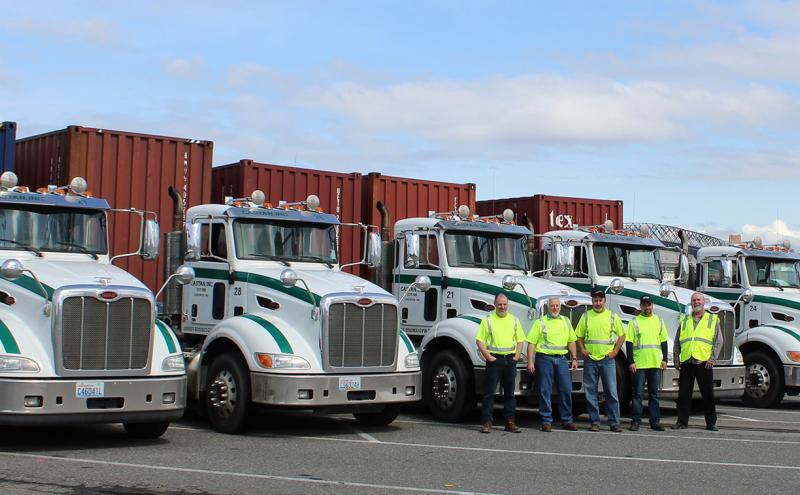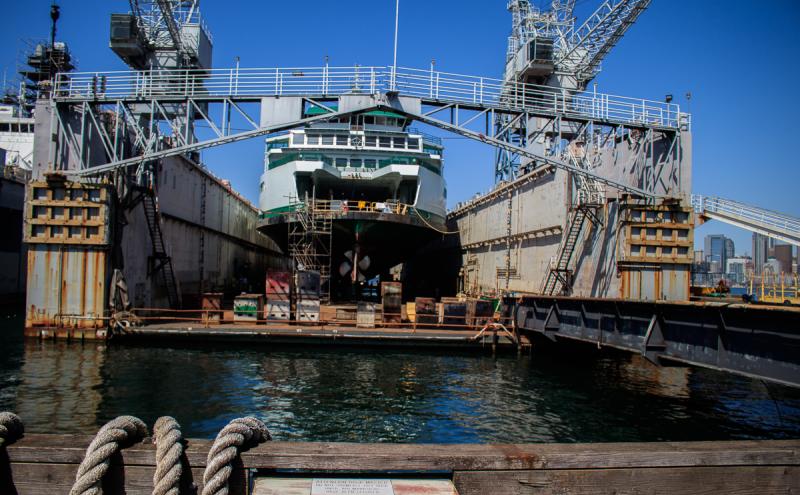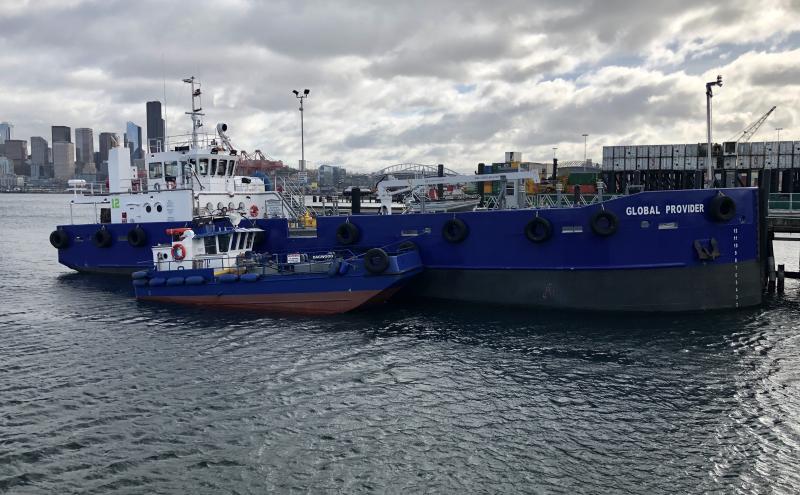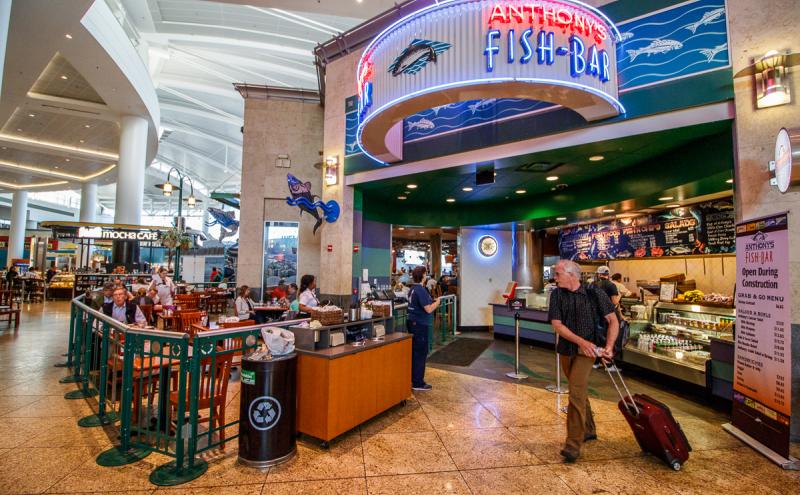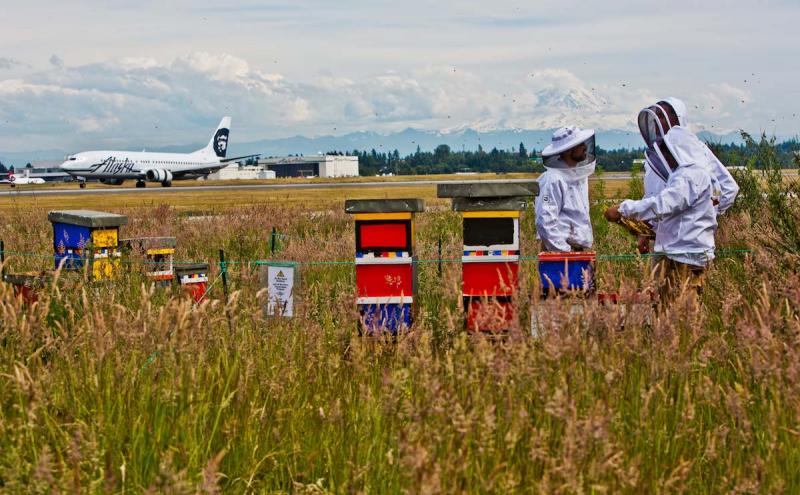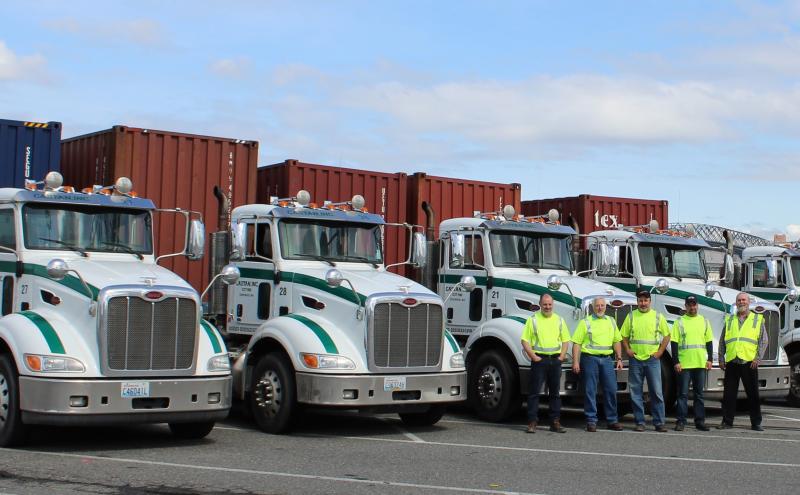
Castan Inc., a trucking company that moves import and export containers out of the Ports of Seattle and Tacoma, consists of a fleet of nine trucks that operate on 100 percent liquefied natural gas.
In 2017, owner Darth Castan converted his entire truck fleet of 1996 diesel engines to 2014 liquefied natural gas engines, resulting in a smaller carbon footprint and a cost savings for the company. Because of this effort, Castan, Inc. is the winner of a 2017 Port of Seattle Environmental Excellence Award for Environmental Performance in the Small Business category.
Edgewood, Washington based Castan, Inc. started in 1980 with a single log truck that Darth Castan drove for his father to put money in the bank while he went back to school.
During two to three weeks off from driving the log truck during the winter, Castan decided to make some extra money by hauling shipping containers coming into the piers in Seattle. From there, Castan made the shift from hauling logs to hauling shipping containers, building the business he operates today. His trucks travel in and out of the Ports of Tacoma and Seattle throughout the day, picking up shipping containers and moving them on to their final destination.
One challenge of owning a trucking business is keeping up with Environmental Protection Agency emissions standards. In 2016, Darth Castan started to plan for his next upgrades to meet emissions standards.
Through his search, he discovered Cummins Westport natural gas engines, which looked like the Cummins engines Castan had worked on for years.
“I thought ‘I wouldn't mind looking closer at one of those,’” Castan said.
“We all have to breathe this air. ... We can’t go out and get new lungs.”
He found that natural gas, or methane, is one of the cleanest and safest forms of energy. Advantages include clean, quiet and reliable performance, low tailpipe emissions, improved efficiency and lower total fuel costs, and less reliance on imported fuel.
Castan was sold on the idea, and upgraded his fleet to 2014 and 2015 trucks with liquefied natural gas engines. He said he has been extremely satisfied with the results.
With the natural gas engines, he has been able to reduce harmful nitrogen oxide by 85 percent, particulate matter by 99.8 percent, and 72 tons of greenhouse gas emissions annually.
“Economically I love it,” Castan said. “The price of fuel is up, but liquid natural gas is staying at a consistent price.”
Although there has been a bit of a learning curve with the new engines and trucks, Castan was trained on the engines himself, and he in turn trained his employees.
Castan feels strongly about doing his share to lessen negative environmental impacts that come along with running a trucking company.
“It’s the right way to go to help fill in the gap until we go electric,” he said. “It’s been on my mind. I know we put out quite a bit (of emissions). Work has to be done so I’ve kept equipment up to standards."
He said the change to natural gas has been a big jump in the right direction.
“We all have to breathe this air,” he said. “We can’t go out and get new lungs.”

